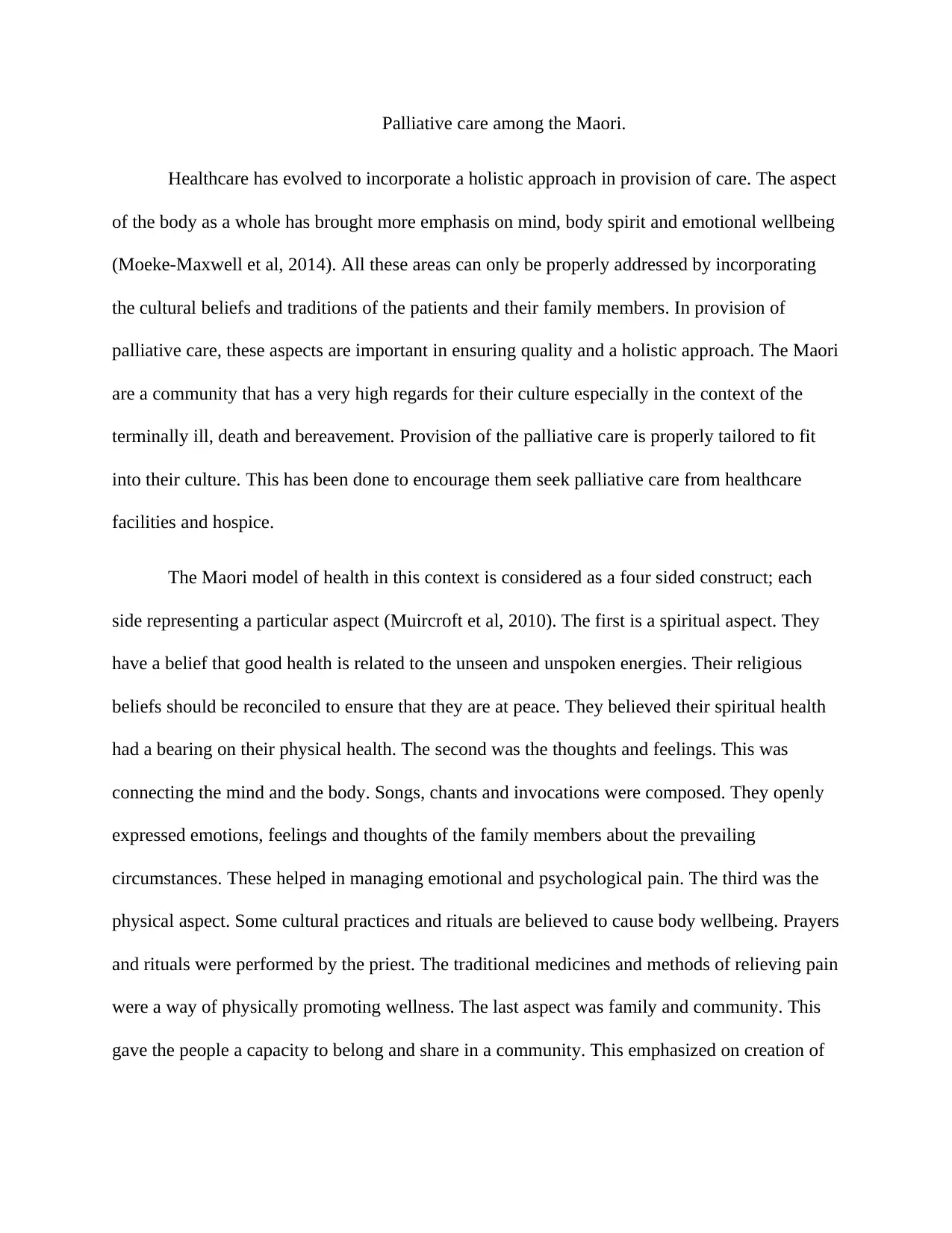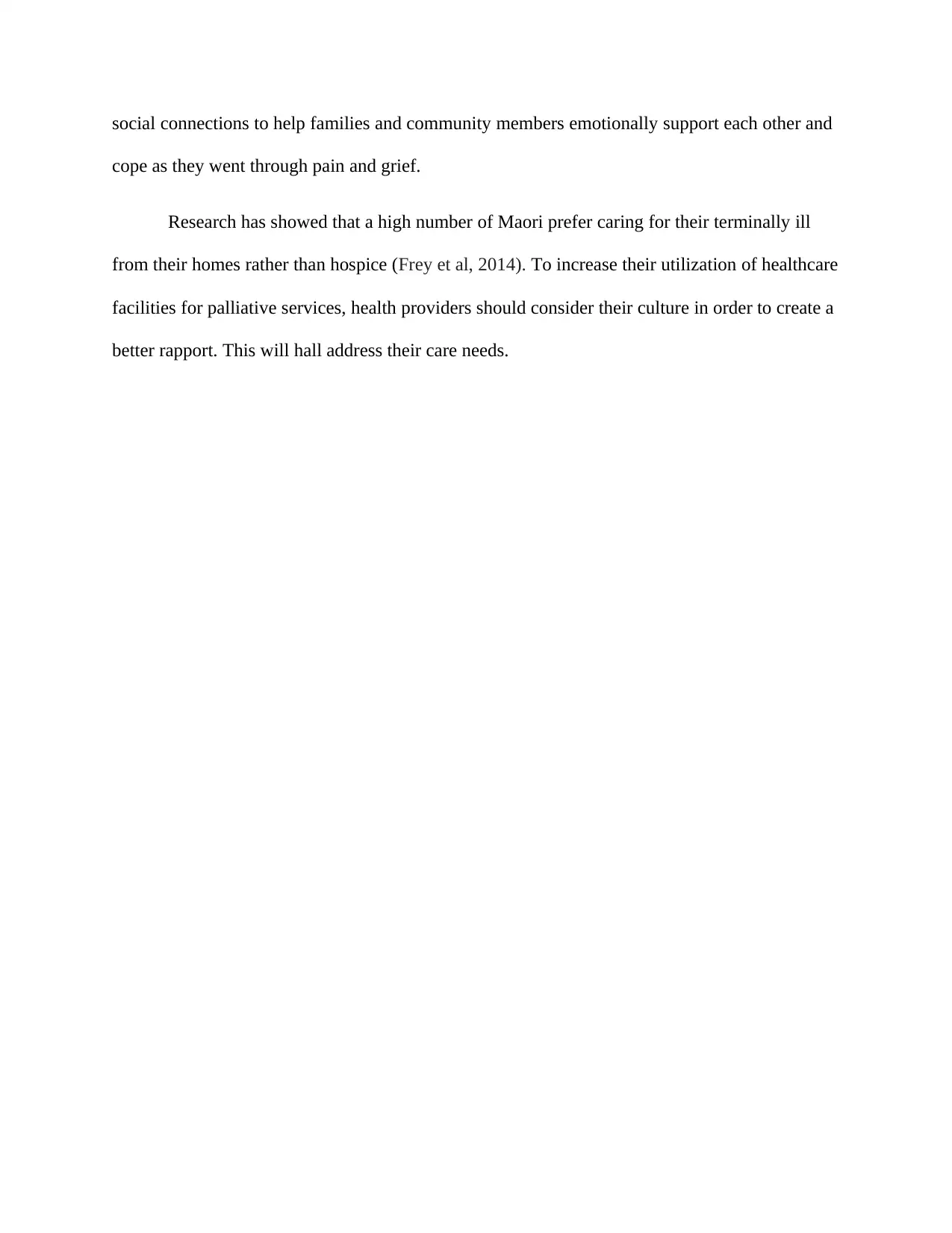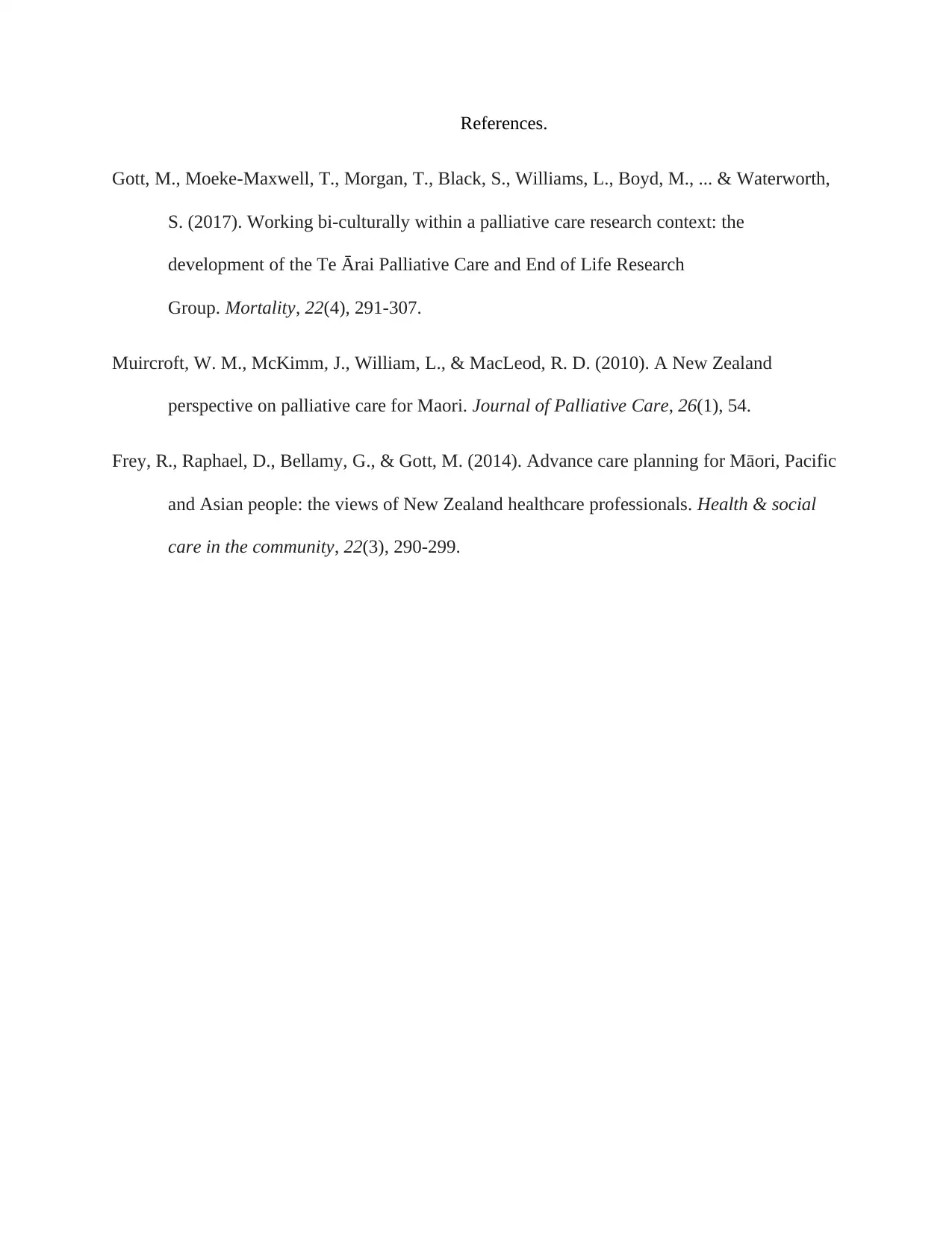Palliative Care for Maori: Cultural Considerations and Healthcare
VerifiedAdded on 2021/05/31
|3
|597
|27
Report
AI Summary
This report focuses on the cultural aspects of palliative care for the Maori people, emphasizing the importance of incorporating their beliefs and traditions into healthcare practices. It highlights the Maori model of health, which encompasses spiritual, emotional, physical, and community aspects. The report discusses the significance of spiritual health, emotional expression, physical well-being through rituals and traditional medicines, and the role of family and community support in providing holistic care. It references research indicating a preference for home-based palliative care among the Maori and suggests that healthcare providers should be culturally sensitive to improve the utilization of palliative services. The report emphasizes the need to understand and respect the Maori culture to address their specific care needs effectively.
1 out of 3










![[object Object]](/_next/static/media/star-bottom.7253800d.svg)